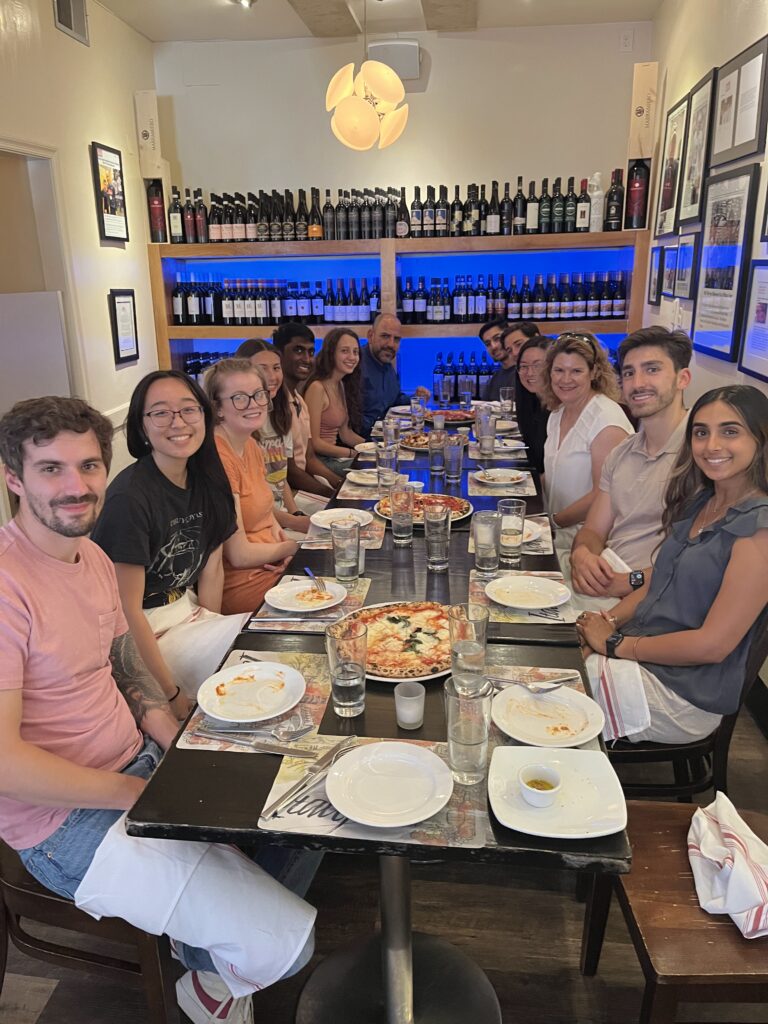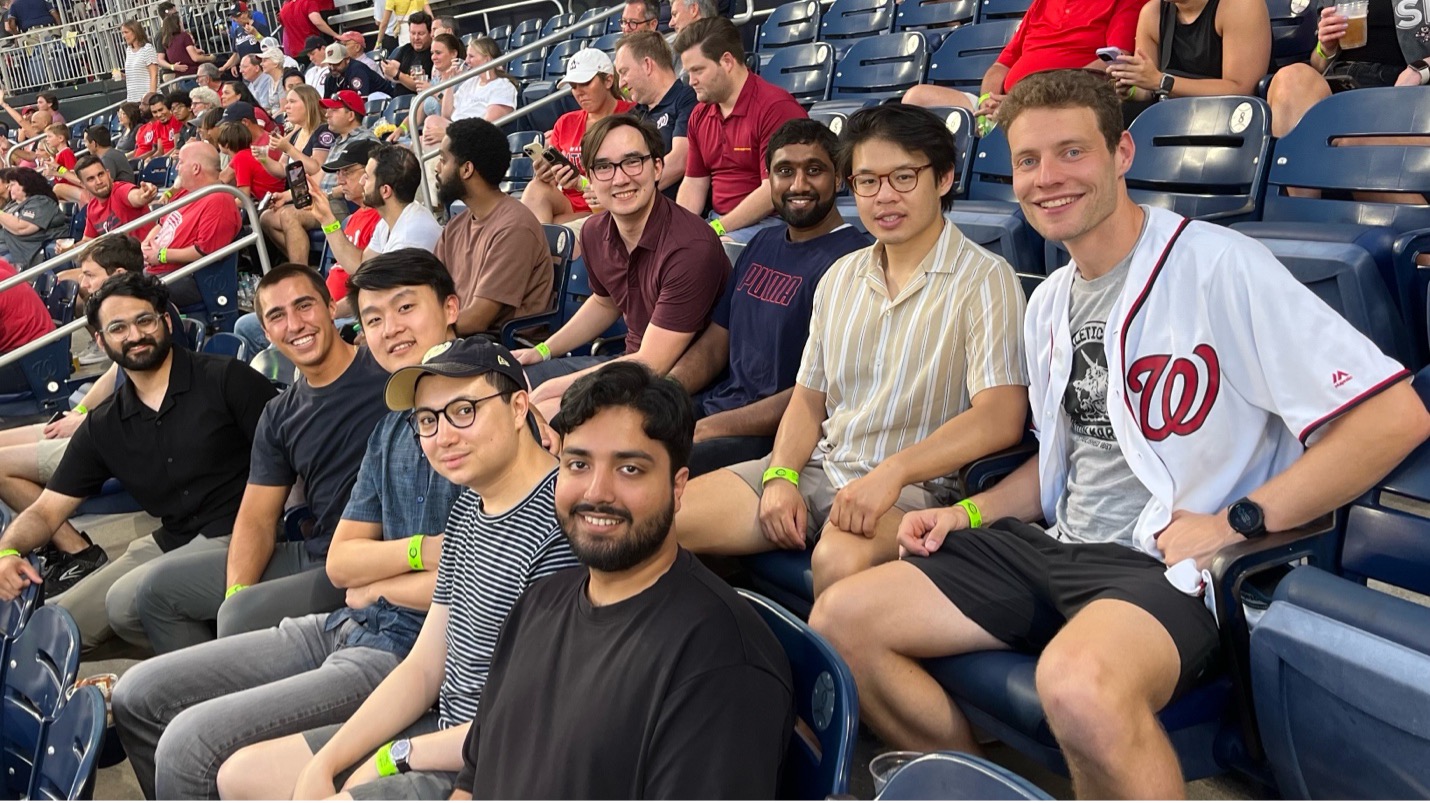And that’s a wrap! The five engineering interns who joined our team at Expedition Technology (EXP) for 10 weeks during the summer of 2023 made a huge impact, learned a ton, had a blast, and have returned to their respective universities for their senior years. Now, it’s time to reflect on the accomplishments of this year’s class while pivoting quickly to begin searching for our summer 2024 interns.
We kick off the process by determining the number of interns we will have, the types of candidates we are seeking, and the type of projects they will take on. Next, we post the position descriptions to Handshake, LinkedIn, Indeed, ClearanceJobs, and other relevant places. Once the applications start flowing, the hard work begins.
What do we look for?
EXP looks for undergraduates who are rising seniors or graduate students who are entering their last year of study. We look for participation or student research experience in computer science, electrical engineering, machine learning (ML), or deep learning and/or class projects in these areas. Prior internship experience helps but is not required. Since the work we do relates to defense and intelligence, we also look for students who may be interested in working in our industry after graduation. Remember to highlight experiences like this on your resume! Last year, we received over 1,000 applications for our program! That’s why providing the information listed above is so important.
Once we’ve determined who we’d like to interview, one of our engineers reaches out to each candidate to conduct a technical phone interview. These conversations focus on the candidate’s technical skills and career interests. A final decision is made as quickly as possible after the phone screen, and offer letters are sent!
What do our interns work on during their summer with us? See what the mentors of the 2023 interns had to say about the interns’ experiences at EXP:
- Rajiv had the opportunity to engage in a diverse range of tasks that stretched his capabilities and provided valuable learning experiences. He started the summer off with front end development using React which allowed him to gain some valuable insight into the problem that he would be directly supporting. He followed that work up with RF algorithm development to help solve a very real and applicable problem that had been plaguing the group for months. That algorithm is still being used and was recently deployed on a test event. Finally, he was able to help train an ML model that also was deployed on that same test event.
- Diya joined the Umbra team with no prior coding experience outside of school projects, but she quickly stepped up and would later reflect on how much more there is to software engineering than just writing code. Her internship project involved creating an API endpoint to offer recommendations for matching a label to known ontology classes using a hybrid model. This was a great real-life introduction to machine learning, and brought out her organization and communication skills, besides her technical ones. In the end, this effort was rewarded by her code making it into the system’s production code, with great feedback from the customer.
- Megan also joined the Umbra team and contributed significantly towards the development of a native annotation labeling tool for the Training Data Storefront (TDS) application. Her project involved prototyping the integration of the Segment Anything Model (SAM)–Meta AI’s new semantic segmentation tool–into a browser-based annotation editor. In addition to implementing core annotation labeling interactions, Megan was also able to improve runtime performance, convert binary masks into polygons, and display satellite imagery within an embedded interactive map. As a result, users were effectively able to create polygons and regenerate results by altering points and bounding boxes. The success of Megan’s prototype has prompted future steps towards the integration of SAM with ongoing annotation relabeling initiatives as a key feature in the user workflow of TDS.
- Cherry had a unique opportunity to work on a completely greenfield project. On her first day, there was no existing code base or infrastructure. Therefore, she had freedom and influence to shape the foundation of the project. She quickly assumed responsibility as she helped create the project infrastructure using Docker Compose to orchestrate the project’s various services and Git hooks to automate developer tools such as ruff, black, and pylint to enforce code quality. From there, she quickly progressed to configuring cloud resources in AWS for development and used the Jenkins EC2 plugin to stand up our CI/CD pipeline. This project also gave Cherry an opportunity to familiarize herself with Airflow on Kubernetes, which, as the program’s target environment, impacted the design of our various cloud resources. However, Cherry’s internship experience wasn’t all technical; she was also part of the 1st place team in our Office Mini Golf Competition!
- Charlie helped to further develop a tool called SigLab, our in-house software for inspecting RF data saved in SigMF or VRT formats. Over the course of the internship, he took a tool with basic capabilities for generating spectrograms via SigPlot and expanded it into a more robust tool with the ability to add and edit annotations easily, multi-select boxes, and load very large files. Charlie also developed an algorithm to auto-label signals within the spectrogram based on FCME (Forward Consecutive Mean Excision) and added the capability to train a lightweight neural network from within the VueJS GUI of SigLab that could bootstrap off user generated labels to help the user quickly label many files. The tool Charlie developed will continue to be used by the SHEARRS team and other projects at EXP, generating lasting impact.
In addition to technical skills, our interns learn other important software development practices. For example, EXP is committed to Agile development, and this is often an area where our interns have no prior experience. After participating in daily stand-ups and Kanban planning meetings, interns grow to collaborate with their teams to create simple and well-defined tickets for them and their team members to work on.
This summer internship was a valuable learning experience for both the interns and their teams. They thoroughly impressed us with their technical skills and problem-solving abilities and were real assets to their teams. Our goal with mentoring is to expose the interns to as much of the program as possible and help them develop software components that will be used by members of the team. Each intern’s contributions have proven to benefit their teams which makes their efforts at Expedition this summer very successful. We are very proud of what they were able to accomplish, and we hope to see them again in the future!
If you are interested in applying to the 2024 internship program (or full-time positions) check out our current job postings.







